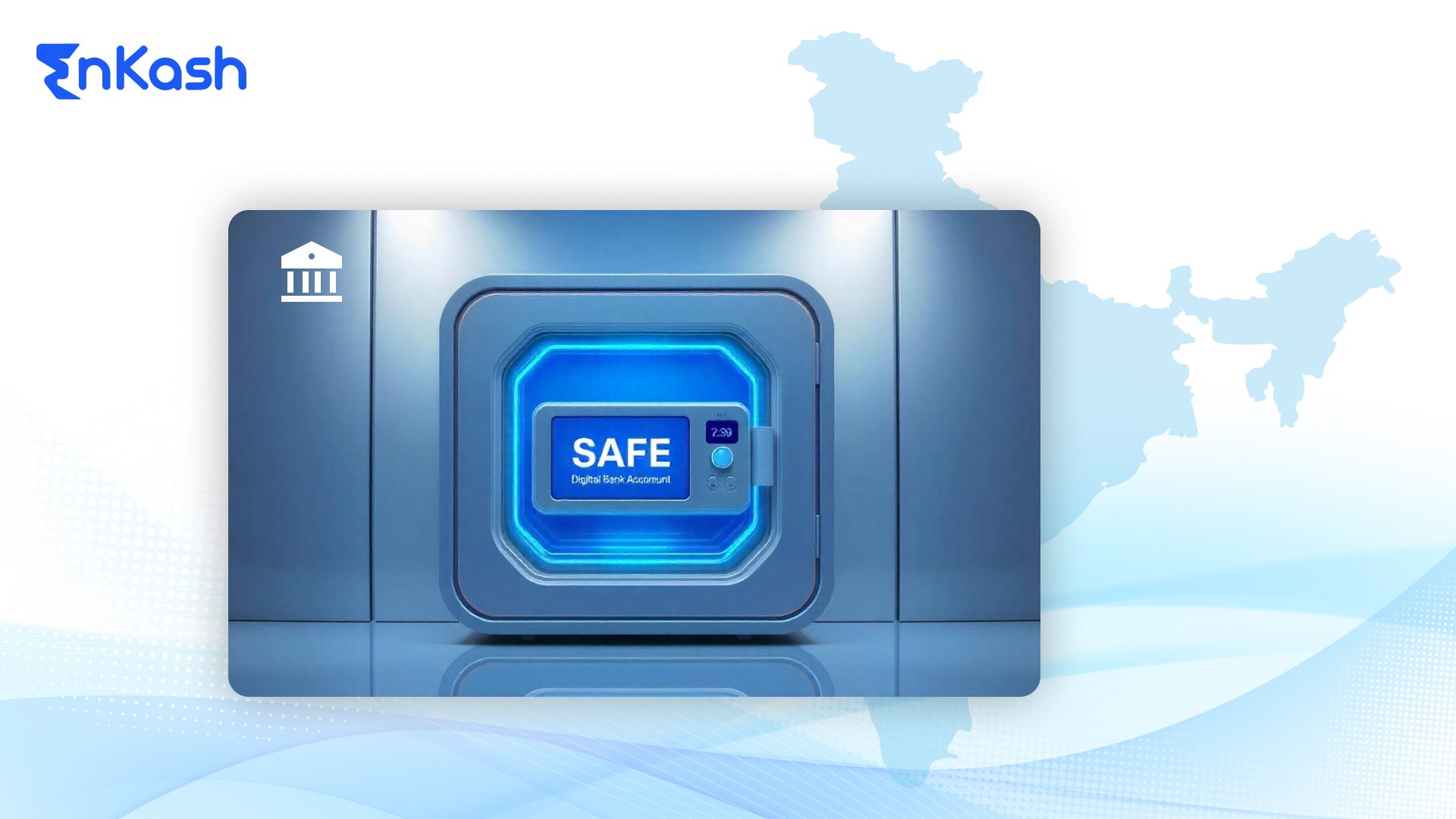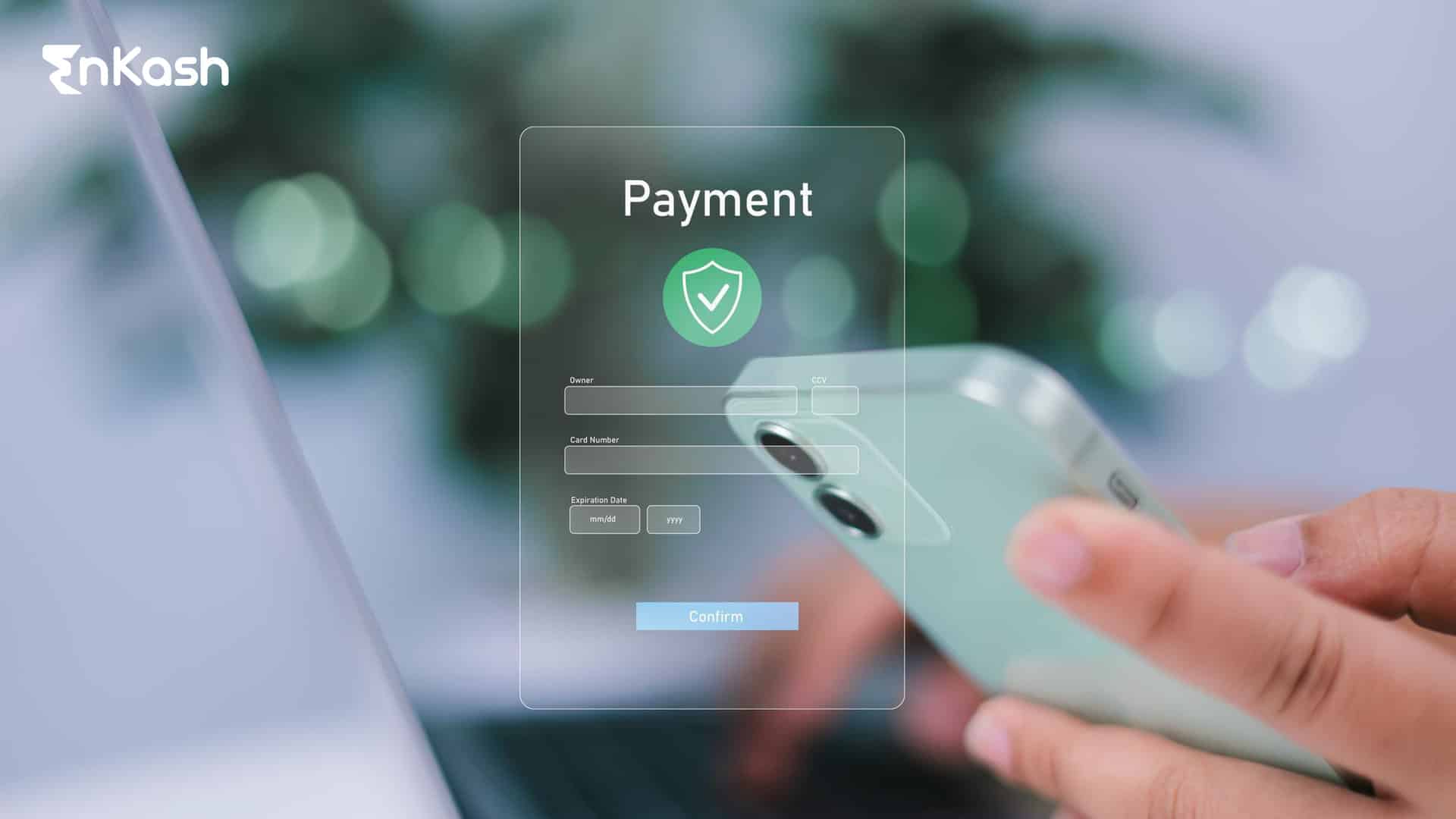Escrow accounts keep transactions secure by holding money with a neutral third party until terms are met, facilitating trust and transparency. Most common in real estate, online trade, and international transactions, they avert losses and protect users. With digital technology and India’s economic development, escrow accounts are now a must-have for safe and smooth money transactions.
What is an Escrow Account?
An escrow account is a financial system in which money or assets are secured by a neutral third party on behalf of two parties involved in a transaction. The funds are released only when all agreed-upon conditions are met. The arrangement is transparent, accountable, and secure, which makes it a top option for complex or high-value transactions in India.
In India, escrow accounts are essential in the real estate, online retail, and corporate mergers sectors. In real estate, for example, escrow accounts safeguard homebuyers by ensuring developers get paid only when certain milestones are reached. When dealing in e-commerce, escrow accounts lock in payment until the buyer confirms receipt.
In addition, the use of digital technology has made it easy to open and manage escrow accounts, making it easier for small businesses and startups to participate in secure financial relationships previously reserved for larger companies. As the Indian economy expands and digital systems become more resilient, escrow accounts will grow in importance and become a crucial part of every traditional and contemporary financial transaction.
Read More: Account receivable process
How does an Escrow Account Work?
Escrow accounts work with a three-part system: the buyer, the seller, and the escrow agent. Here’s an in-depth explanation of how they work:
- Agreement on Terms: The buyer and seller define the transaction’s terms, including milestones, deadlines, and conditions for fund release.
- Account Setup: An escrow account is created with a bank or a digital escrow service provider.
- Funds Deposit: The buyer deposits the agreed amount into the escrow account, where the funds are held securely.
- Milestone Verification: The escrow agent verifies that the conditions or milestones have been met.
- Funds Release: Upon verification, the funds are released to the seller or the intended party.
When conducting international business, escrow accounts assist in reducing the risks associated with international trade, keeping both buyers and sellers on the same page while negotiating between several legal and regulatory structures.
Types of Escrow Accounts in India
Escrow accounts are used across a range of industries. Before diving into individual account types, it’s crucial to note the adaptability of these accounts for a wide range of financial requirements.
Real Estate Escrow Accounts
This account is common in real estate transactions, and developers receive money only when certain phases of construction have been completed, thus safeguarding the property rights of homeowners. In accordance with the Real Estate (Regulation and Development) Act (RERA), these accounts provide accountability in the real estate industry.
E-commerce and Marketplace Escrows
Secure transactions over the Internet by holding payments until buyers verify the purchase of products or services. It eliminates fraud and disputes in the ever-expanding Indian e-commerce industry.
Investment and Business Mergers
Enable safe fund transfers in M&A (mergers and acquisitions), keeping up with laws and contracts. These accounts are used to manage risks, store money until all the agreed terms are fulfilled, and keep both sides from being exposed to losses.
Litigation Escrows
Hold funds in the event of litigation and have money held by a neutral third party until the case is settled. These types of accounts are often used in a high-stakes dispute to secure the financial interests of both parties.
Cross-Border Trade Escrows
Hold funds for overseas transactions until the products are delivered and scanned. It is particularly helpful for exporters and importers addressing new or unfamiliar trading partners.
Read More: Cost accounting types
How to Open an Escrow Account?
In India, here is how to create an escrow account:
- Choose a Provider: Choose a bank or digital escrow platform, depending on the purpose of the transaction.
- Establish Terms and Conditions: Clarify the agreement, milestones, deadlines, and release points.
- Submit Documentation: Provide documents like identity proof, address proof, and transaction information.
- Deposit Funds: Deposit the agreed amount into the escrow account.
- Monitor Milestones: Observe progress to make sure all parameters are met.
- Release Funds: Upon verification of milestones, the escrow agent releases the funds.
Digital platforms can streamline it further and make it accessible even to small businesses and individuals. This methodical setup provides transparency, reduces conflicts and increases trust.
Escrow Agreement
An escrow contract is a legal agreement that spells out the responsibilities of all escrow participants. Key components include:
- Parties Involved: The buyer, seller, and escrow agent.
- Transaction Terms: Conditions and milestones for fund release.
- Agent Responsibilities: The responsibilities of the escrow agent are to manage money and determine conditions.
- Dispute Resolution Mechanisms: Steps to resolve conflicts.
A properly worded escrow contract avoids any confusion and ensures the rights of everyone involved. It is always best to consult an attorney while negotiating such agreements to ensure they are in line with Indian laws and regulations.
Escrow as a Service (EaaS)
Online Escrow as a Service (EaaS) is revolutionizing payments in India. These platforms provide:
- Ease of Use: Easy configuration with minimal paperwork.
- Cost-Effectiveness: Affordable solutions over traditional escrow services.
- Accessibility: Available for individual users, small businesses and large enterprises.
EaaS is especially good for Indian startups and SMEs as it allows them to conduct secured payments without paying high prices. With new technologies like AI and blockchain, these platforms are also increasingly efficient and transparent.
EaaS also enables the two sides of a transaction to track developments continuously in real-time, which builds trust and eliminates the likelihood of disputes. This is especially true in fields like e-commerce and freelancing, where trust plays an important role in maintaining long-term relationships.
Read More: Financial accounting
Legal and Regulatory Framework for Escrow Accounts in India
Escrow accounts in India are regulated by RBI to ensure legitimacy. Key considerations include:
- KYC Compliance: Follow Know Your Customer best practices strictly.
- Tax Implications: Escrow funds can be subject to tax on interest earned.
- Dispute Resolution: Legal recourse for resolving conflicts between two or more parties.
These guidelines create a robust system of secure and legal transactions and ensure that escrow accounts function within the legal boundaries prescribed by Indian financial authorities.
How to Maximize the Effectiveness of Escrow Accounts
Taking advantage of escrow accounts can only be done effectively through proper planning, stable partnerships and technological implementation. These are some key practices that can improve the utility and stability of escrow services:
1. Define Clear Terms
The key to preventing disputes and misrepresentations is to have clear and specific terms and conditions in the escrow contract. Make sure that roles, responsibilities, and fund-release terms are clear and mutually understood by all parties. This clarity lowers the chance of disagreement and makes the process of transactions easy.
2. Select Trusted Providers
It’s crucial to work with a good, trusted and seasoned escrow agent or platform to ensure a smooth and safe transaction. Trusted providers offer high-quality systems, comply with the regulations, and offer customer service to manage any problems that arise during the escrow process.
3. Monitor Progress
Monitor milestones and terms periodically as laid out in the escrow contract. Regular reports and communication with the escrow agent keep all parties in the loop and the transaction goes as smoothly as possible. It also allows you to identify delays or problems in advance.
4. Leverage Technology
Using high-tech digital tools can help boost the efficiency of escrow accounts. These platforms include real-time tracking, automated notifications, and secure document sharing. Additionally, blockchain-based escrow solutions provide secure transaction logs and smart contract fund transfers that reduce human involvement and errors.
5. Engage in Regular Reviews
In long-term or multi-step transactions, it is important to revisit the escrow agreement and milestones on a regular basis to accommodate changes in circumstances or unexpected issues. This proactive strategy helps to ensure that the escrow contract is consistent and useful throughout the transaction lifecycle.
Read More: Managerial accounting
Emerging Trends & Future of Escrow Accounts in India
Digital Transformation
The advent of Escrow-as-a-Service (EaaS) platforms has altered the way escrow accounts work. These platforms automate, eliminate paperwork and provide escrow services for businesses of all sizes. As they leverage leading technology, they provide real-time monitoring and automated updates to deliver reliable operations at lower cost.
Blockchain Integration
Blockchain technology is making escrow services more trustworthy and transparent. By creating permanent records and allowing smart contracts, blockchain removes the need for manual oversight. Escrow funds are now automatically released upon fulfilling certain conditions, thus preventing disputes and boosting efficiency.
E-commerce Growth
As India has witnessed an explosion in online commerce, the demand for escrow accounts for secure online payments has increased significantly. These accounts guard against fraud and guarantee customer satisfaction by suspending payments until the product or service arrives as agreed. This feature is particularly helpful when dealing with high-value or custom orders.
Government Initiatives
Escrow adoption has been driven by the Indian government’s focus on digitization and financial inclusion. Campaigns such as Digital India and recent RBI regulations promote open and secure financial systems. These efforts primarily serve to provide a strong foundation for the adoption of escrow in multiple industries.
Future Outlook
As digital ecosystems mature, escrow accounts will likely become the backbone of financial transactions. With a growing cross-border trade, new fintech services, and consumer demand for transparency, the future of Indian escrow accounts is bright. The companies and individuals who make use of these resources are able to remain ahead in an aggressive, trust-based marketplace.
Conclusion
Escrow accounts play a vital role in enabling safe, transparent, and reliable financial exchanges in different sectors in India. As a means to secure funds until certain conditions are met, escrow accounts help minimize the risk of fraud, develop trust, and make financial transactions easy. As organizations and individuals alike continue to work in a highly competitive, digitalized world, escrow solutions can greatly help improve business productivity and protect interests.
In addition, with better digital infrastructure and regulatory framework, escrow accounts can become an even more prominent component of India’s financial ecosystem. From the real estate market and eCommerce to cross-border trading and corporate mergers, the use cases for escrow accounts are enormous and growing. For anyone involved in high-risk or milestone-based transactions, knowing and utilizing escrow accounts is not only beneficial but critical to a secure and transparent financial relationship.
Read More: Difference between cost and financial accounting
FAQs
What are the industries in India that use escrow accounts the most?
Escrow accounts are extensively used in real estate, e-commerce, mergers and acquisitions, cross-border business and litigation. They are most popular in real estate to lock down buyers’ money until a certain level of construction is complete and in e-commerce to guard against online exchanges between purchasers and sellers. Because of their versatility, they are crucial in any industry that needs financial stability.
Can escrow accounts in India handle multi-currency transactions?
Yes, there are various banks and online escrow providers in India that provide multi-currency escrow accounts. These are especially useful for cross-border payments where two parties use different currencies. It’s possible to keep the funds in the target currency until the terms are met, making international trading easy and minimizing the risks of currency conversion.
Are there any specific regulatory challenges for escrow accounts in India?
The major hurdle is tight regulatory compliance with the Reserve Bank of India (RBI) rules, specifically Know Your Customer (KYC) and AML regulations. Additionally, the parties need to be certain that the escrow agreement is legal and follows the tax laws, such as the interest on funds.
Can escrow accounts be used for subscription-based services?
Yes, escrow accounts are ideal for subscription-based products where payments wait for certain service milestones to be met. Businesses, for example, can fund escrow accounts to store money for long-term contracts so that payment is only made after the agreed-upon deliverables are fulfilled, granting both service providers and subscribers peace of mind.
How does an escrow account differ from a payment gateway?
Both provide transaction security, but escrow accounts are more sophisticated. Escrow holds funds till both sides of a transaction agree on the transaction terms. A payment gateway, however, sends funds directly without holding funds or establishing conditions, so escrow is best used for large-value or conditional transactions.
Are digital escrow services safe in India?
Yes, Digital Escrow Services in India are secure as long as they are offered by a credible platform or RBI-licensed banks. These websites employ encryption, secure payment gateways and data privacy policies to safeguard your data and money. Select trusted companies for maximum protection.
Can escrow accounts be customized for specific transactions?
Absolutely. Escrow accounts can be adapted to the specific needs of certain types of transactions, like milestone payments, deferred fund releases or multi-party contracts. This configuration ensures all parties are covered and the transaction runs smoothly.
What happens to the funds in an escrow account if one party defaults?
If one party defaults, money in the escrow account is kept in place and never transferred until the dispute is settled. The escrow company can arbitrate, or you can appeal the matter to arbitration or court and have the funds sent to the correct party. This functionality protects against loss caused by the violation.
How does an escrow account support startups in India?
Escrow accounts offer startups a secure way to raise funds, handle vendor payments, and implement subscriptions. Escrow allows investors to withdraw funds only upon certain milestones, enabling accountability and trust. In addition, startups can securely trade with customers and vendors by using escrow services.
What are the tax implications of using escrow accounts in India?
Taxation on escrow accounts in India also means that you have to pay taxes on any interest accrued while money is stored in the account. The beneficiary has to pay taxes when the funds are released. Make sure you consult a tax professional to know what taxes come with an escrow transaction in India.













